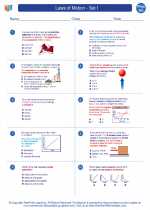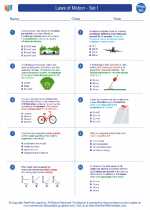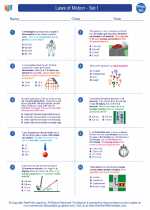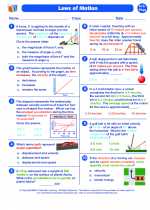Ionization in Physics
Ionization is a process in which an atom or a molecule gains or loses electrons, resulting in the formation of charged particles called ions. This process can occur through various means, such as exposure to high-energy radiation, collisions with other particles, or through chemical reactions.
Understanding Ionization
Atoms consist of a nucleus containing positively charged protons and neutral neutrons, surrounded by negatively charged electrons orbiting the nucleus. When an atom undergoes ionization, it can either lose electrons, resulting in a positively charged ion (cation), or gain electrons, resulting in a negatively charged ion (anion).
Factors Affecting Ionization
The ionization process is influenced by several factors, including the energy of the incident radiation or particles, the atomic structure of the material, and the presence of external electric or magnetic fields. Higher energy radiation or particles are more likely to cause ionization by imparting enough energy to remove one or more electrons from the atom.
Applications of Ionization
Ionization plays a crucial role in various fields, including radiation therapy for cancer treatment, ionization smoke detectors, mass spectrometry, and the operation of ion engines in spacecraft propulsion. Understanding ionization is also key to the study of plasma physics and the behavior of charged particles in electric and magnetic fields.
Study Guide for Ionization
Here's a study guide to help you master the concept of ionization:
- Understand the structure of an atom, including the arrangement of protons, neutrons, and electrons.
- Learn about the different methods of ionization, such as photoionization, collisional ionization, and electron capture.
- Explore the factors that influence the likelihood of ionization, including the energy of radiation, atomic number, and the presence of external fields.
- Study the applications of ionization in various fields, including healthcare, environmental monitoring, and aerospace technology.
- Practice solving problems related to ionization, such as calculating the energy required to ionize a specific atom or molecule.
By mastering the concept of ionization and its applications, you'll gain a deeper understanding of the behavior of charged particles and their role in the physical world.
[Ionization] Related Worksheets and Study Guides:
.◂Physics Worksheets and Study Guides High School. Laws of Motion - Set I

 Worksheet/Answer key
Worksheet/Answer key
 Worksheet/Answer key
Worksheet/Answer key
 Worksheet/Answer key
Worksheet/Answer key
